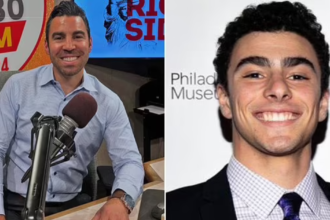The murder of 22-year-old college student Laken Riley drew national attention during the recent election cycle, fueling an emotional and politically charged debate over immigration and crime. The trial for the suspect, 26-year-old José Antonio Ibarra, has begun in Athens, Ga., bringing the case back into the spotlight. Ibarra faces multiple charges, including felony murder, kidnapping, aggravated assault, aggravated battery, hindering an emergency telephone call, tampering with evidence, and being a Peeping Tom.
Ibarra waived his right to a jury trial, meaning Athens-Clarke County Superior Court Judge H. Patrick Haggard will decide his fate. Prosecutors have chosen not to seek the death penalty but intend to pursue a sentence of life in prison without parole. During opening statements, prosecutor Sheila Ross accused Ibarra of killing Riley when she “refused to be his rape victim.” Ross highlighted that Ibarra’s DNA was found under Riley’s fingernails and his thumbprint was on her phone screen. Meanwhile, defense attorney Dustin Kirby described the evidence against Ibarra as circumstantial.
Read More: Megan Fox
The Tragic Events Leading to Laken Riley’s Death
Laken Riley was a nursing student at Augusta University, having transferred from the University of Georgia, which does not offer a nursing program. Despite the transfer, she remained an active member of her sorority at UGA. On February 22, police began searching for Riley after her friend reported that she had not returned from her morning run. Later that day, officers discovered Riley’s body in a forested area near Lake Herrick on UGA’s campus. She was unconscious with visible injuries, and emergency medical responders pronounced her dead on the scene. Her cause of death was blunt force trauma.
The details of Riley’s death quickly became a focal point in the debate over immigration and crime. According to Immigration and Customs Enforcement (ICE), Ibarra, a Venezuelan, unlawfully entered the U.S. near El Paso, Texas, where he was apprehended by Border Patrol agents in 2024. He was later released on parole. Ibarra was previously charged in New York City with acting in a manner to injure a child less than 17 and a motor vehicle license violation.
The Political Fallout and National Debate
As these details emerged, Georgia Republicans were swift to blame Riley’s death on the Biden administration’s immigration policies. In March, Georgia Republican Rep. Marjorie Taylor Greene interrupted President Biden’s State of the Union address and shouted, “Say her name,” referring to Riley. Biden responded by acknowledging Riley’s tragic death and urging Republican lawmakers to reconsider supporting a bipartisan immigration bill, which had aimed to strengthen border security and hire more Border Patrol agents and immigration judges.
President-elect Donald Trump also spoke of Riley during his nomination acceptance speech at the Republican National Convention. “Yet another American life was stolen by a criminal alien set free by this administration,” Trump said. Throughout his campaign, Trump repeatedly spoke of immigrants as criminals, despite multiple studies indicating that immigrants commit fewer crimes than U.S.-born people.
The Emotional Trial and Evidence Presented
Loud sobs echoed through the courtroom as prosecutors presented graphic body camera video showing the moment a police officer found Riley’s body on February 22. Members of the gallery passed tissues between rows and covered their faces as the video played. Prosecutors described how Ibarra “went hunting for females on the University of Georgia’s campus” before encountering Riley.
Sgt. Kenneth Maxwell, who found Riley, testified that her shirt was pulled up and she was at least 50 feet away from the trail she was jogging on. “It did not look as if something had unintentionally happened,” Maxwell said. “It looked more intentional, as if somebody had attempted to either remove her top, or maybe had used it to drag her.”
Prosecutor Sheila Ross emphasized that Riley fought for her life and dignity, leaving forensic evidence behind. Data from Riley’s smartwatch showed that her encounter with Ibarra was long and fierce. Riley placed a 911 call at 9:11 a.m., and her heart stopped at 9:28 a.m., with no more movement from her watch. Additional forensic, digital, and video evidence was presented, including Ibarra’s DNA found under one of Riley’s fingernails and his thumbprint on her cell phone.
Defense attorney John Donnelly argued that any evidence showing Ibarra killed Riley is circumstantial. He questioned the DNA evidence, suggesting that prosecutors are relying on conflicting methods to link DNA and fingerprints to Ibarra. Donnelly also rebuffed the prosecution’s claim that Ibarra’s fingerprint was found on Riley’s phone, noting that Ibarra was supposedly wearing gloves.
The Impact on Immigration Policy and Public Opinion
The outcome of the case will reverberate beyond the courtroom walls. Both Republicans and Democrats invoked Riley’s story at political events, and immigrant communities in Athens are divided over the vitriol. Ibarra, who’s from Venezuela, is also charged under Georgia’s “peeping Tom” law for allegedly looking through the window and spying on a student on the same day as Riley’s death.
Ibarra was indicted on 10 counts, including malice murder, three counts of felony murder, kidnapping with bodily injury, aggravated assault with intent to rape, aggravated battery, obstructing a person making an emergency call, tampering with evidence, and peeping Tom. The defense and prosecution agreed to a bench trial, meaning the judge will hear evidence and testimony and decide Ibarra’s fate. If convicted of the most serious charges, prosecutors intend to seek a sentence of life in prison without the possibility of parole.
The Legacy of Laken Riley and the Future of Immigration Debate
The murder of Laken Riley has left an indelible mark on the national conversation about immigration and crime. Her tragic death has been used as a political tool by both sides of the aisle, highlighting the deep divisions and emotional charged debates surrounding immigration policy. As the trial of José Antonio Ibarra continues, the focus remains on seeking justice for Riley and her family.
The case has also sparked a broader discussion about the treatment of undocumented immigrants and the need for comprehensive immigration reform. The politicization of Riley’s death has underscored the urgent need for bipartisan solutions that address both border security and the humanitarian aspects of immigration.
In conclusion, the murder of Laken Riley has had a profound impact on the national debate over immigration and crime. The trial of José Antonio Ibarra has brought the case back into the spotlight, highlighting the emotional and political charged nature of the issue. As the nation watches the trial unfold, the legacy of Laken Riley serves as a reminder of the human cost of failed immigration policies and the need for comprehensive reform. The future of immigration debate will continue to be shaped by cases like Riley’s, as the nation grapples with the complexities of immigration and the pursuit of justice.













